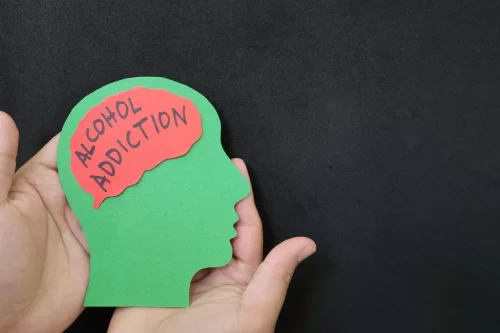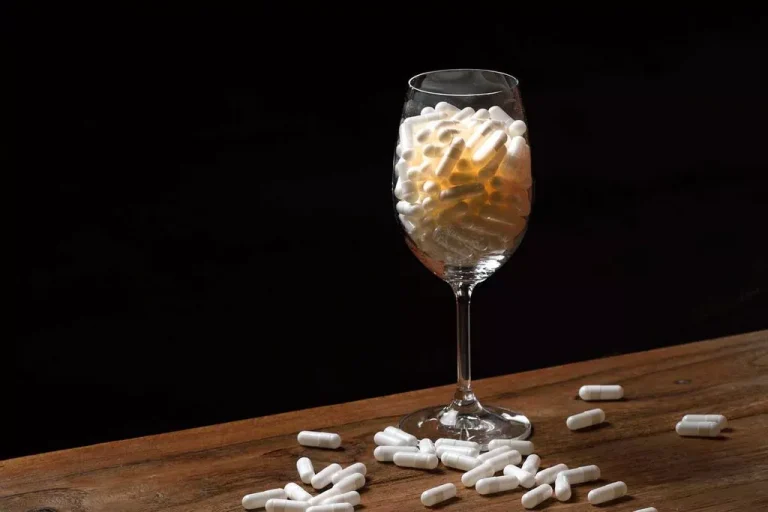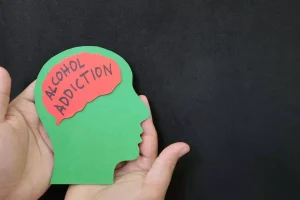
The problem is that as we get older, this fun liquid — from a physiological and psychological perspective — becomes less fun. This doesn’t mean you’ll get cancer if you drink, but it does mean that your risk increases. And we don’t like to think about it because it’s a buzzkill — we may like alcohol, but alcohol does not like us. “The quality of sleep is almost always worse after consuming alcohol,” confirms Allder.

Adverse Effects of Disrupted Sleep

In this comprehensive guide, we will Substance abuse explore the science behind sleep temperature and practical tips for adjusting your AC settings for an optimal sleep environment. Drinking too much is likely to have the opposite effect and leave you feeling groggy and possibly hungover the next day. Also, research shows that people can develop a tolerance to this boozy method within three nights, causing you to need a larger amount of alcohol to get the same effect.
- She holds a professional certificate in scientific writing from Stanford University School of Medicine and has contributed to many major publications including Insider and Verywell.
- The most common type of sleep apnea is obstructive sleep apnea (OSA), and it occurs when the tissues in the mouth and throat relax and block the airway during sleep.
- Sleep architecture is biologically driven and finely calibrated to meet the body’s needs during nightly rest—changes to the natural, typical structure of sleep aren’t generally good for health or well being.
- It’s because I know what alcohol can do to sleep and healthy circadian rhythms.
- The cumulative effect is a cycle of poor-quality sleep which may lead to fatigue and increased sleep issues over time.
Sleep Medicine Physician

While “relaxed” may sound appealing, alcohol has also been shown to negatively affect https://ecosoberhouse.com/ sleep and other physiological processes that occur during sleep. So, does alcohol help you sleep or is it actually interfering with your quality of rest? Read on to find out how alcohol can affect your sleep, and why—as well as insight into the health benefits of getting enough shut-eye. If you don’t set a limit before heading to the bar, it can be easy to find yourself ordering another drink every time the bartender comes around to check on you and your empty glass.
Tips for sleeping after a night out
But over the course of the night, it can wreak havoc on your sleep architecture and lead you to toss and turn. Rather than sipping red wine, consider instead having a glass of tart cherry juice, which is a good natural source of melatonin. If you’ve ever had a couple of drinks, you don’t does alcohol make you sleep longer need a scientist to tell you that alcohol can make you feel sleepy.
- This practice can mask an underlying sleep disorder such as obstructive sleep apnea which may be causing the insomnia in the first place.
- Ultimately, your overall sleep quality will take a hit as the alcohol starts to metabolize and its effects begin to wear off.
- While “relaxed” may sound appealing, alcohol has also been shown to negatively affect sleep and other physiological processes that occur during sleep.
- If you want to avoid any ill-side effects of alcohol—at least as it relates to your sleep—cut yourself off around three hours before bedtime.
- Schedule a free consultation with Dr. Rodgers and the team at Sleep Better Georgia today so we can get to the root of your sleep problems and help find the solution that’s right for you.
Alcohol also interferes with your body’s ability to absorb essential vitamins and minerals from food, like folate or folic acid (vitamin B9), iron, and magnesium, which fuel your body’s tissues and functions. Drinking alcohol relaxes the muscles around your throat, making you more likely to snore too. This is because alcohol can make the tissue in the nose swell, which can cause congestion and create a need to breathe through the mouth, making you snore. Snoring may well disturb your own sleep by waking you up – but it is likely to cause problems for partners too.
Managing Chronic Pain and Sleep: Helpful Tips for a Good Night’s Rest
- Like alcohol and insomnia, drinking is closely connected with sleep apnea.
- There’s a complicated relationship among depression, alcohol, and sleep.
- Like nearly all of the body’s organs, the liver functions according to circadian rhythms.
- Changes in the blood-brain barrier configuration can impact the brain’s overall health, including alterations in white matter thickness and integrity (NCBI).
The body circulates blood in just 90 seconds, so you start to feel the effects of alcohol fairly quickly (cue the drowsiness!). Your blood alcohol concentration (BAC) starts to rise, but just how quickly that happens depends on many things, like whether you’ve had a big meal, how much you’ve had to drink, and certain genetic factors. Sleep apnea is a common disorder that causes breathing to repeatedly stop and restart during sleep, affecting the amount of oxygen your body gets. Individuals with sleep apnea often snore, gasp for air while asleep and wake frequently throughout the night.

